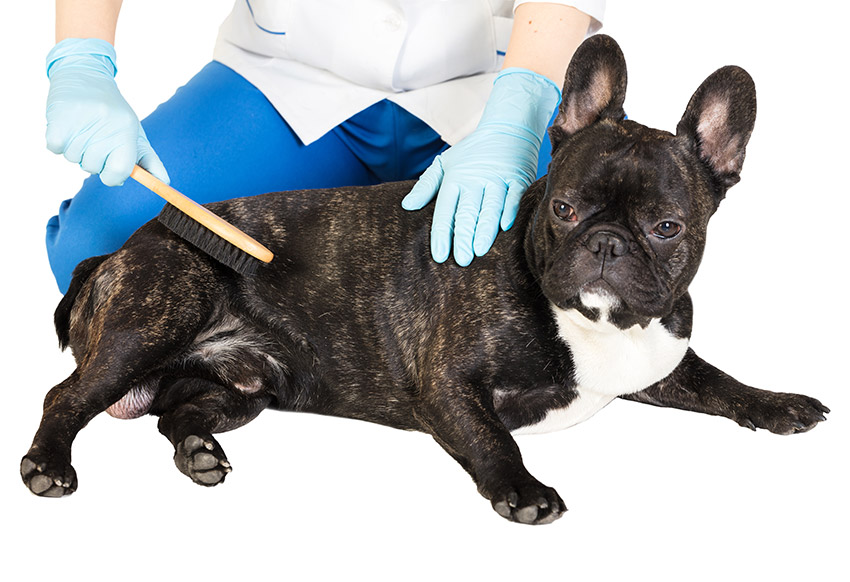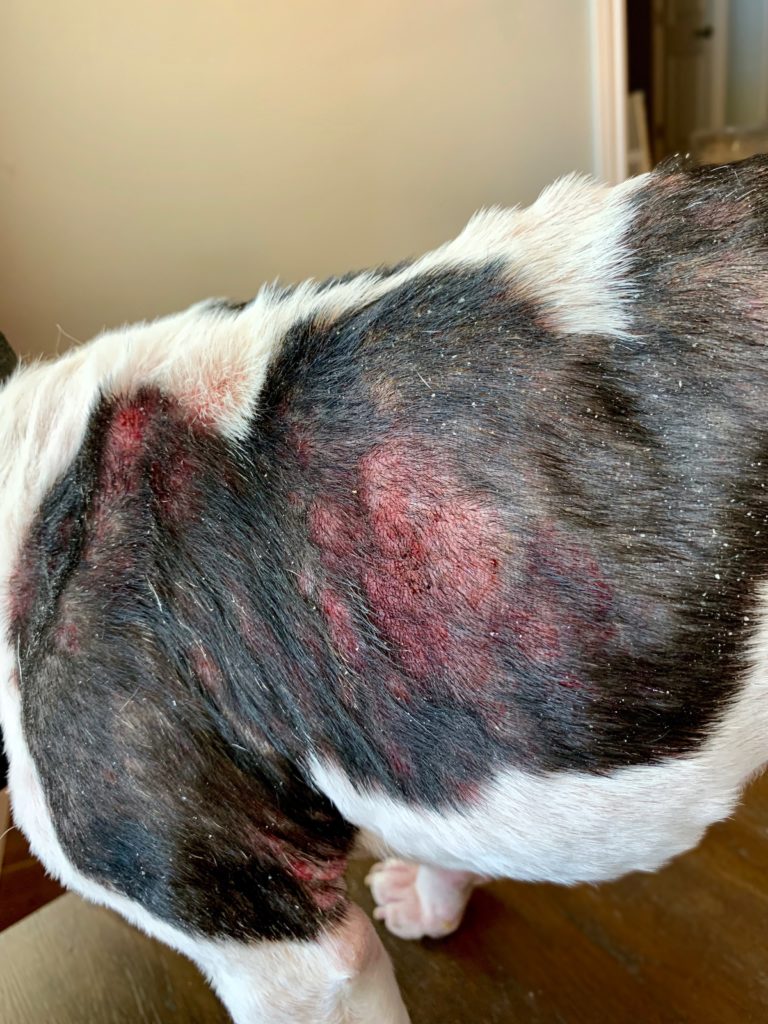French Bulldogs are adorable, lovable, and energetic little dogs. With their short, stocky builds and distinctive bat ears, it’s no wonder why these pups have become so popular in recent years! However, adopting a Frenchie may not be an option for some people with allergies. That’s why it’s essential to understand what allergies French Bulldogs can have and how you can counteract them. Read on for everything you need to know about French Bulldog allergies!
The Most Common French Bulldog Allergies

There are a few common allergies that affect French Bulldogs. These include food-related allergies, flea or tick bites, and environmental allergens like pollen, grass, and dust mites. Due to their sensitive stomachs, food-related allergies tend to be the most common type of allergy in Frenchies. Symptoms of food allergies in Frenchies can include itchy, dry skin, redness, vomiting, and diarrhea.
Why You Should Stay Aware Of Your French Bulldog’s Allergies

It is important to stay aware of your French Bulldog’s allergies so that you can take steps to prevent them from developing into something more serious. Allergies can lead to secondary infections if left untreated for too long, which can be challenging to manage. Additionally, some allergies can be fatal if left untreated.
Rare French Bulldog Allergies

In addition to the more common allergens, a few rare allergy types affect French Bulldogs. These include contact allergies (from coming into contact with certain materials like fabric or metal), seasonal allergies (which are caused by changes in temperature and humidity levels), and inhalant allergies (from inhaling dust, pet dander, and other environmental allergens).
Medicine That Can Help Your Dog’s Allergies

Fortunately, a few medications can help reduce the symptoms of your dog’s allergies. Anti-allergy medications such as steroids and antihistamines are often prescribed to manage the more severe allergic reactions. Additionally, shampoos, supplements, and other topical treatments can be used to reduce itching and inflammation caused by allergies.
Fatal French Bulldog Allergies

In some rare cases, allergies in French Bulldogs can be fatal. Anaphylactic shock is the most serious form of allergy, and it can cause severe swelling, difficulty breathing, and even death if not treated immediately. The most common causes of anaphylaxis in French Bulldogs are bee stings and food allergies.
Treatments For Your French Bulldog’s Allergies

When treating your dog’s allergies, it is important to work with a veterinarian to determine the best course of action. If your dog is suffering from anaphylaxis, the vet will likely prescribe epinephrine to reduce swelling and open up the airways. For other allergens, your vet may recommend a combination of anti-allergy medications, topical treatments, and dietary changes.
Conditions That Aren’t Allergies

It is important to note that some conditions can be mistaken for allergies in French Bulldogs. These include skin infections, parasite infestations, and food intolerances. If your dog is experiencing any of these symptoms, it is essential to see them by a vet to rule out an allergy and find the proper treatment.
The Reverse: Treating An Allergy Of French Bulldogs

If you or someone in your family has an allergy to French Bulldogs, there are steps you can take to reduce the severity of their reaction. These include limiting contact with the dog, washing your hands after petting them, and using air filters and dehumidifiers to reduce allergens in your home.
How You Can Surpass An Allergy Towards French Bulldogs

If you find that an allergy towards French Bulldogs is getting in the way of your relationship with them, there are a few steps you can take. First, talk to your doctor about potential treatments and medications that may help reduce your symptoms. Additionally, look into hypoallergenic breeds that may be better suited for people with allergies.
Conclusion

French Bulldog allergies can be tricky to manage, but with the right knowledge and care, you can provide your dog with the best possible treatment. Whether it’s food-related allergies or environmental allergens, understanding the signs and symptoms of French Bulldog allergies is vital in helping you keep them safe and healthy.
FAQs
Are French bulldogs hypoallergenic?
No, French Bulldogs are not considered hypoallergenic. While they have less dander than other breeds, they can still trigger allergies in people sensitive to dogs.
Can frenchies have benadryl?
Yes, French Bulldogs can be given Benadryl as long as a veterinarian has prescribed it. It is important to follow your vet’s instructions when giving any medication to your Frenchie.
Does food sensitivity count as an allergy?
Yes, food sensitivity is considered an allergy as it can cause similar symptoms, such as itching, redness, and vomiting. If your French Bulldog exhibits any of these symptoms after eating a certain type of food, they may have a food sensitivity or allergy.
What is the difference between an allergy and an infection?
An allergy is when the body’s immune system reacts to something in the environment that it deems harmful, while a virus or bacteria cause an infection. Allergy symptoms can include itching, sneezing, and redness, while infection symptoms can include fever, fatigue, and coughing.

